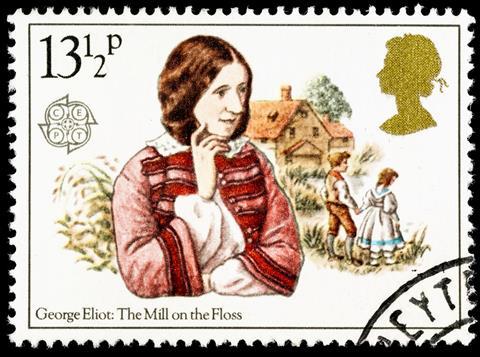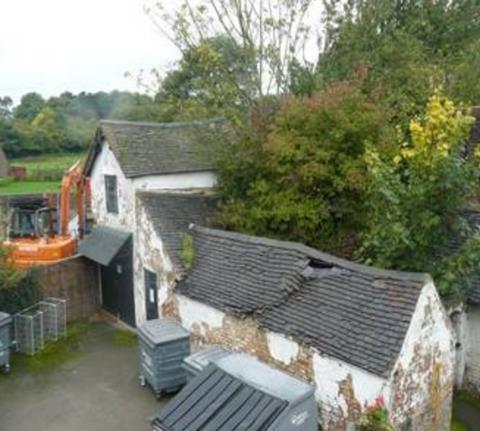Proposals by Hayward Architects include visitor centre and museum but would see demolition of poorly maintained outbuildings
The Victorian Society has called for the public to rally against the proposed demolition of farm buildings at the childhood home of 19th century writer George Eliot.
Plans drawn up by Hayward Architects would see the construction of a museum and visitor centre dedicated to the Middlemarch author, whose real name was Mary Ann Evans, but some outbuildings which are in a poor state of repair would be flattened.

Eliot, whose early work focused on English rural life and society, grew up and worked on the farm, known as Griff House, becoming housekeeper there at the age of 16.
The Victorian Society said the buildings earmarked for demolition would have influenced her view of the world during her formative years and are calling for their repair and reuse.
The proposals, located near Nuneaton in Warwickshire, have been submitted to Nuneaton and Bedworth council by the Griff Preservation Trust.
The main farm house building, where Eliot lived between 1820 and 1841, is now a pub and restaurant attached to a large modern hotel.

It would be repaired under the plans, but the scheme’s heritage consultant Richard K Morriss & Associates said some of the site’s outbuildings had not been maintained for over half a century and are now in a “very parlous state”.
Victorian Society conservation officer Guy Newton said the campaign group “naturally supports” the proposed creation of the George Eliot Visitor Centre and Museum but it was “crucial to get the details right”.
“These agricultural buildings are essentially authentic George Eliot artefacts, and every effort should be made to conserve and restore these buildings,” Newton said.
“Many historic house museums have previously lost their service areas – be those domestic or agricultural - in the mistaken belief that they were of no interest and irrelevant to the history of a house and its inhabitants.
“We must not repeat the mistakes of the past by destroying these agricultural buildings that were a part of George Eliot’s childhood home.”
Middlemarch, published in 1871, was described as the greatest novel in the English language by Martin Amis. Eliot’s other novels include Daniel Deronda and the Mill on the Floss.
Members of the public have until 12 March to lodge objections to the proposals.


















1 Readers' comment